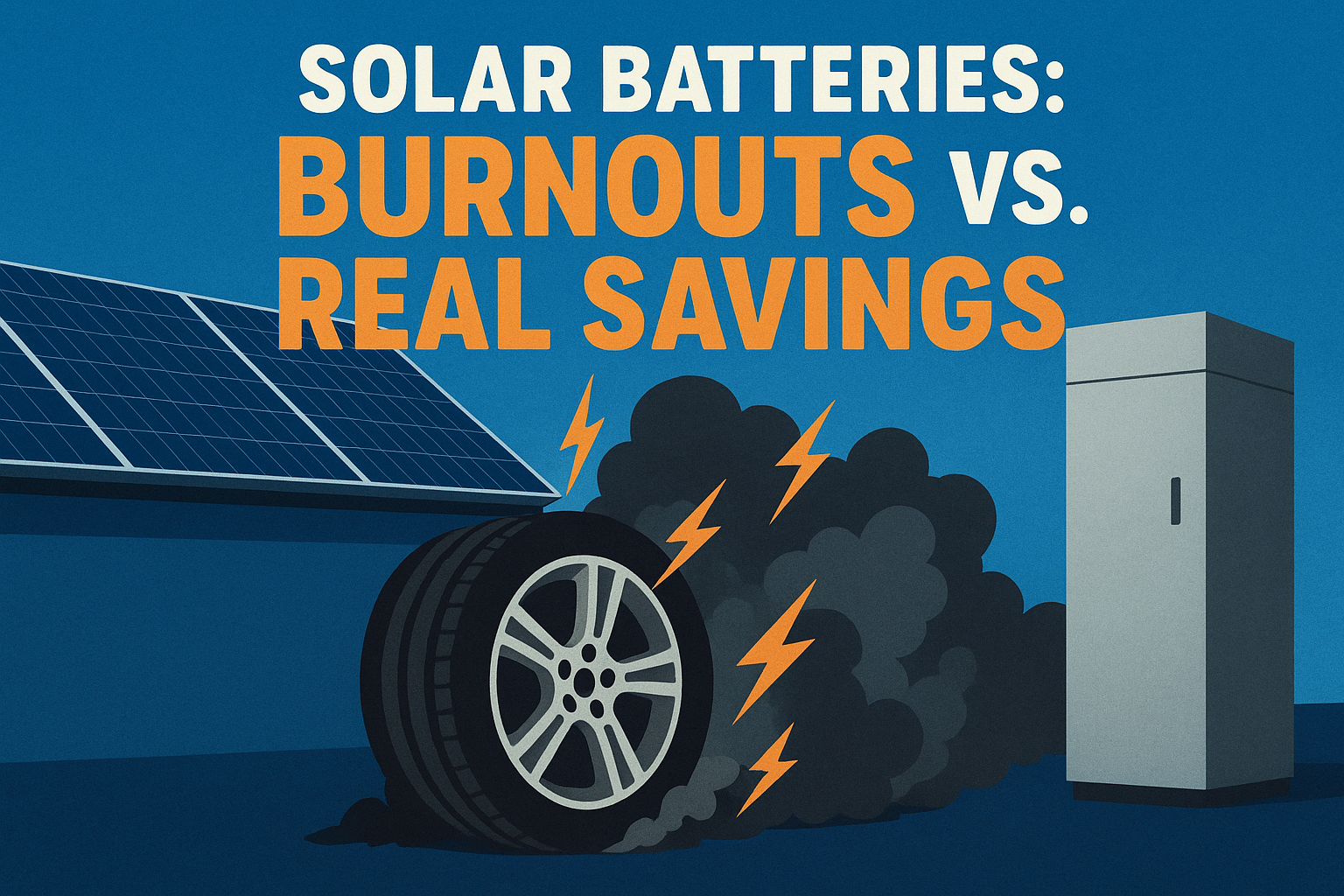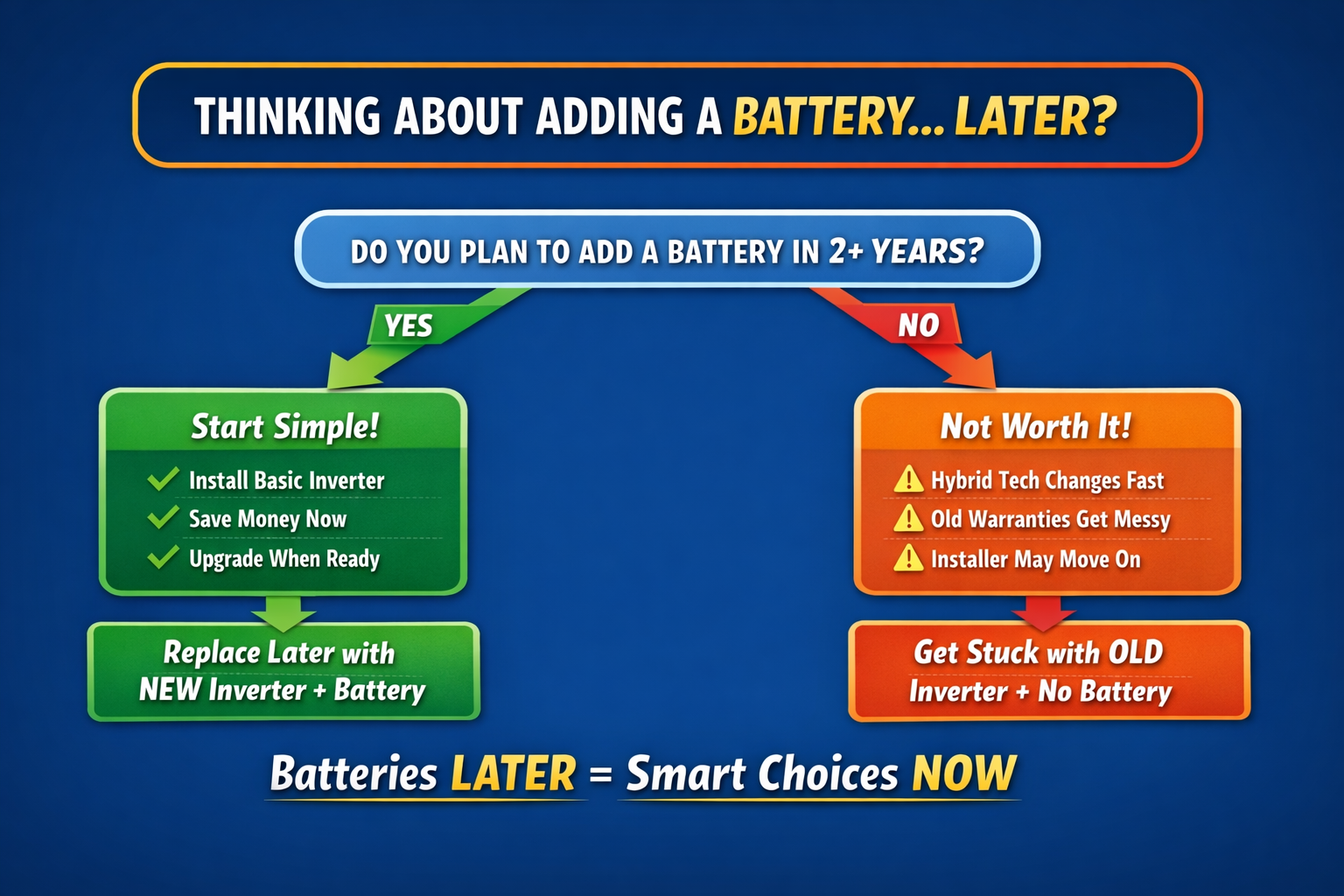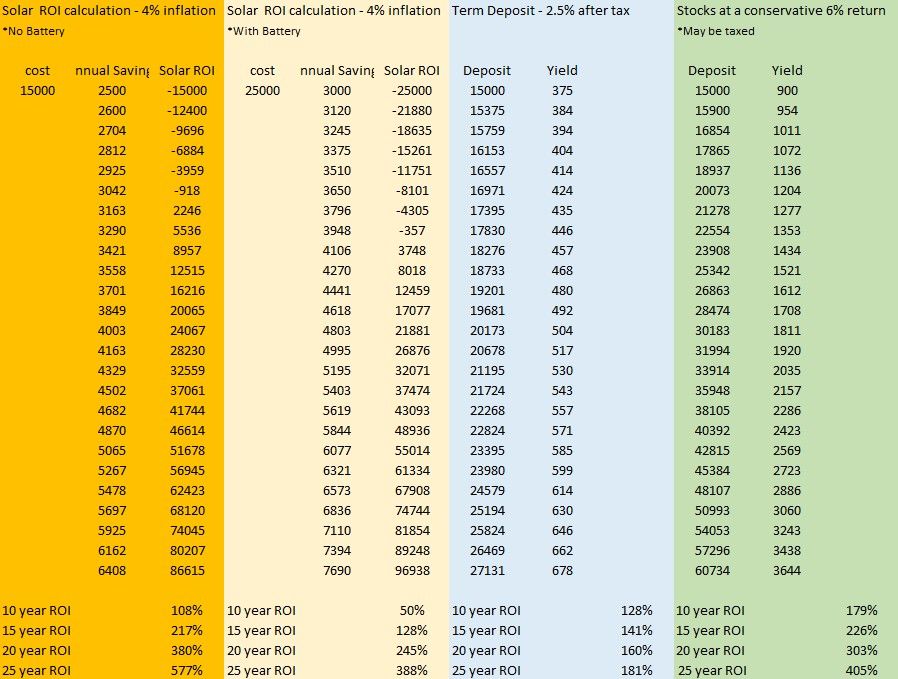Why energy trading with your solar battery is more burnout than breakthrough

Why most of the “savings” claims don’t stack up
Every week, we hear the same thing:
- “I’ll get a battery to save heaps more money.”
- “I’ll trade power at peak times and make bank.”
- “Without a battery, solar is pointless.”
Spoiler alert: none of those are entirely true. Batteries are useful, yes. But are they the financial slam dunk some companies pitch them to be? Not really.
First Things First: The Blackout Question
Yes, a battery means your solar can keep running when the grid drops out. Without one, your panels shut down by law. For many, that peace of mind is priceless — fridges cold, Wi-Fi humming, lights on.
But let’s be honest: most of us aren’t buying a $15k battery just to keep Netflix running during a storm. What we really want to know is: will it save me money?
Solar Alone: Already a Winner
Take a 17-panel system (7.5kW), costing around $14k:
- Generates ~10,000 kWh/year.
- You’ll use about 35% directly = $1,330 saved.
- The rest gets exported to your retailer for ~16c/kWh = $1,040 in credits.
That’s $2,370/year in your pocket, and a 6-year payback. No battery required.
What Happens With a Battery?
Adding a decent battery lifts self-consumption, shaving more off your bill. Sounds great, but let’s check the numbers:
- Solar + battery setup ≈ $24,000.
- Annual savings ≈ $2,800.
- Payback = 8–9 years.
So yes, a battery saves a bit more. But the gap between $2,370 and $2,800 is hardly the stuff of legends.
The Energy Trading Myth
Here’s where it gets funny. Some retailers (Ecotricity, for example) pay 21c/kWh from 5–9pm. Clients often tell us:
“I’ll make sure my battery is charged by 5pm so I can export then.”
Except their import rate at that time is 35c/kWh. So why would you sell your power for 21c, when it’s worth 35c if you just use it?
That’s not smart trading. That’s like buying a bottle of wine for $35 and selling it for $21 — and then going thirsty.
Worse still, heavy trading cycles hammer your battery faster, and most warranties only cover one cycle a day. You’re not “winning,” you’re just burning tread.
Smarter Ways to Boost Savings
- Shift your loads: run appliances when the sun’s out.
- Hot water diverters: cheap tech that stores solar in water, not batteries.
- Off-peak charging: some retailers let you fill your battery cheap at night and use it during the day.
These often deliver more bang for your buck than running a “battery stock market” from your garage.
So, Are Batteries Worth It?
If resilience is high on your list — or you love maximising your solar use — a battery makes sense.
But if it’s just about raw savings? Solar alone is already a cash cow. The battery just adds a little cream on top. And if you’re thinking of trading power like Bitcoin… well, that’s just a burnout waiting to happen.



